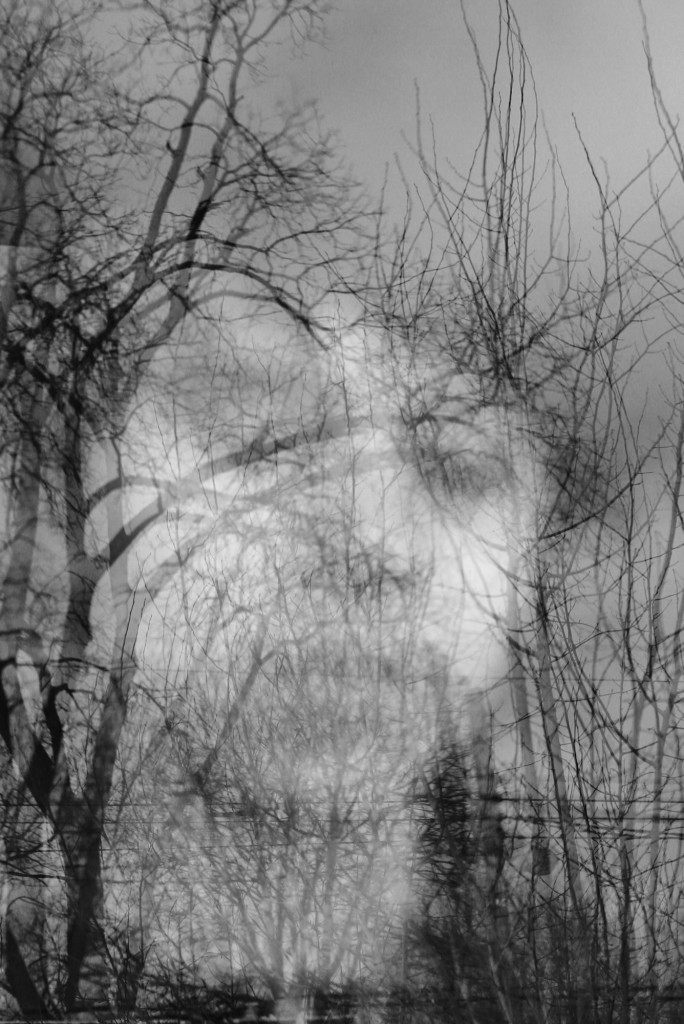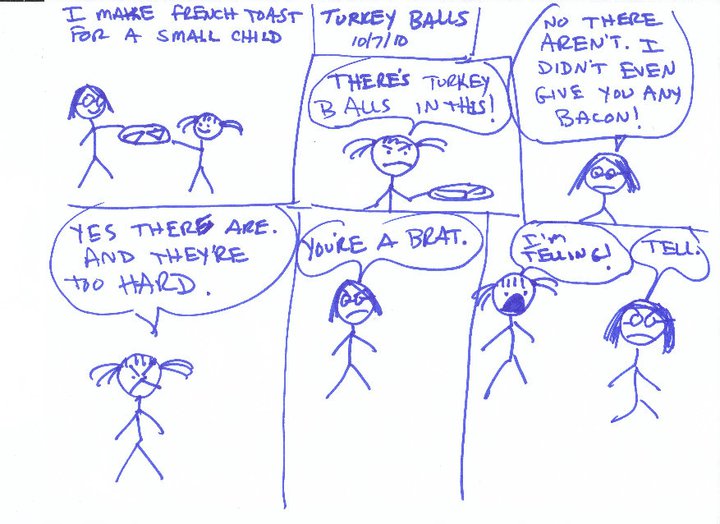
By Jordan E. Rosenfeld
When the dead visit my mother in dreams, they always come bearing information, like a character in an Isabelle Allende novel. Her older brother, who died of liver failure when she was eighteen, made only one visit over the decades to reassure her he was at peace, and then not again until long after both their parents had passed. My grandmother made a similar walk-on appearance. These ghostly visitations in the realm of slumber are often a sign of peace or acceptance for my mother. But not with Gayle, my mother’s best friend of forty years, also my godmother, who passed away September 2013, slipped off the edge of our knowing, her end a question.
“I dreamt she was a prisoner upstairs in that bedroom crying for help and mercy and not able to get to the bathroom,” my mom texted me this week. “She even called out my name and said she was in such pain.”
The dream repeated on an exhausting loop all night, she said. The same loop that works its way through my brain every day. Like a badly written mystery novel, pieces keep falling into place since we learned, six months after the fact, of Gayle’s death.
Learned after the fact, long after the chance to say goodbye, because her husband, too, ghosted away, line disconnected, house sold, a man still flesh becoming phantom.
Our facts have been gleaned from those practitioners of health and death—the doctor, the dentist, the mortuary attendant.
Denied the chance to attend a funeral, my mother and I arranged a memorial, just a handful of Gayle’s oldest friends, clustered around the coffee table. After I’d gone, Mary Lou, with short-cropped hair, a self-professed “psychic” to whom my mother had not spoken in over thirty years, told her: “Gayle was here, I felt her. She said her greatest regret is what happened between Jordan and Jeff.”
There’s no way that Mary Lou could have known about the falling out between me and my godfather.
•••
Children give love the way the sun gives light—without reserve, daily, radiant. Unless it’s beaten or broken or shamed out of them. Children see the world with awe and love. Sometimes in the midst of a grumpy rushing morning, my six-year-old son will stop and notice a simple thing—a puddle looks like a frog or the cloud like an anvil, and my heart will tumble downhill at how much beauty I fail to see. I saw it once, too, though; I remember the dust motes streaming through slivers of light in my godparents’ New York apartment when I was about his age. Only, I didn’t think of it as dust, but particles of separate universes escaped from the books they stacked nearly to the ceilings, a tower where Rapunzel would never have been bored, with reading material for ages and Chinese food delivered at any hour.
Can I really remember such specifics from these early years? But I do—wooden floors that shined with a rare light. A red velvet couch, decorative buttons bulging off the taut fabric like the teats of a nursing bitch. Magazine pages, glossy and spilling open their stinky perfumed pages with half dead models in painful contortions that equaled beauty.
My godparents were mythical creatures—Gayle commanding us from her perch in the chair, or on the book-laden bed—small as a child, with an old cancerous bite scooped from her side, but a Goddess in her power. “Bring me those Malomars,” she’d command Jeff. “I’m hungry.” And he’d scurry off on his sinewy calves, a man-servant to do her bidding. Sometimes I imagined her holding a scepter of snakes entwining, a tiny clay urn of poison hidden around her neck. And Jeff, his mind a hoarded library of facts and verses, his super power in memory, recitation and detail, Shakespeare and Elliott, Baldwin and Foster Wallace, a shield woven of words to keep him safe from the world.
When I visited, I was the lone child, Eloise in my freedom to roam their rooms, while clouds of pot smoke filled the air. They’d let me sink my loosening little girl teeth into oily, creamy cannoli, tri-color marzipan cookies from Vignero’s bakery around the corner, greasy, fragrant NY pizza, cool cups of bubbling soda.
My godfather crooned stories to me, his accent musical, his eyes always slightly glazed. Soft brown bangs fell in his face—thin and fine like mine. John Lennon glasses. Skinny calves always thrusting out of long shorts.
When the New York apartment gave way to a bright San Diego condo for Gayle’s new job, I missed the luminous magic of that urban pad, even though the view was traded from back alley to blue ocean. The people here were surfer tan instead of poet pale. But the stacks of books were just as high. Jeff gave me strange and captivating books full of broken men and eccentric women. William T. Vollman and Burroughs, Steven Milhauser and R. Crumb.
I was a product of stories, those I read and those I wrote, mimicking the worlds of my reading. An only child until fourteen, I fancied myself a lonely orphan, my divorced but friendly parents preoccupied by their addictive monkeys and bare survival, making a living, making a score, making it through the night.
Did I love him simply because he was there, appointed by the guardians of my care in the interim between their own availability? Or did I love him the way that we accept the gravity that holds us to the earth? I took his presence as a sign that he must love me, too. After all, he didn’t have to spend a week entertaining a barely-teen girl every spring break. The kind of girl who alternated between scribbling in her journals in a fury and brooding over blasted MTV music videos, roaming the condo like a rangy young beast in search of snacks.
My instincts, even as a child, were sharply honed. Once, at the age of seven, a stoned friend of our downstairs neighbor found me playing alone outside and told me that he had “a little dragon friend” who was cute, but “not as cute as you.” Somehow, I knew this man for what he was. I stood up and shouted, “You can’t talk to me like that, I’m just a little girl.”
Perhaps I loved my godfather because I had known him all my life, the mythical man who could quell my bellowing baby howls with opera played full bore. Maybe I loved him because he came attached to the warm, sweet, often laughing, dirty-joke–cracking presence of my godmother. But I never trusted him. He always kept a mug beside him, retreating often to the kitchen to refill it. By the time I was fourteen, and visiting for spring break, my own mother having already gone to drug and alcohol rehab, I no longer wondered about the origins of that potent sweet-chemical scent; further, his slurring, babbling, suddenly-sitting-too-close told me that he was drunk.
•••
I knew that Jeff had a daughter: the mysterious “Beth” who lived in the same South that had carved his own verbal cadence, tight and twangy. She was older than me, and I pictured her like wild Mary of The Secret Garden, unkempt and blonde and inconsolably unhappy because her parents had abandoned her. Well, unlike Mary, only Beth’s father had left, however, and now he was mine, on loan, a fatherish figure who kept me company because he did not have to work. I don’t know whose not-quite-whispered whispers suggested that Beth despised me, usurper child who had stolen what was rightfully hers by my loving him.
This is also a story about selfishness, how a child wants what she wants and takes what she can get. Pocketfuls of stolen change scooped from her father’s drawers, or candy from 7-11 shelves snatched right behind a clerk’s turned back. This is a story of how one little girl never thought to wonder why her godfather had a faraway daughter, a child of imagined swamps with a sweet drawl, who never came to visit, or why he rarely went to visit her. Not until the faraway daughter had a child of her own, then two, did pictures appear of the then twenty-something daughter and her gleaming, golden-haired babes.
•••
Only those you have loved can break your heart. It doesn’t matter if they ever loved you back. The adult forms like a stone shell around the seed crystal of the child.
Life moved in tidal ways. Ebbs of happiness and dark depths, followed by riptides pulled into fissures where I pressed facedown, spitting out sand and bottom dwellers. As my godfather shifted his loyalties toward the clear liquor that he loves more than daughters or wives or having a job or reading or the genius IQ chipped away by years, the crystal of girl that I was responded in pain. She said hateful things and wrote them down. She aimed them with lethal precision.
Children give love like the sun gives light.
Adults transmute light into pain.
•••
One month after the one-year anniversary of Gayle’s death, after several unsuccessful attempts to contact Jeff, suddenly I found a friend request on my Facebook account from the faraway daughter herself, Beth. For a moment I could not swallow. Was she coming to take me to task for pushing him away? For taking what wasn’t mine?
And yet she was my only possible connection to the answers that my mom and I have been seeking for nearly eight months. Hands at tremble, I accepted, unsure of what was true: would she turn out to be the harpy full of hatred who I’d been warned about, who disliked me on principle for being the surrogate?
Her message to me suggested otherwise, breaking open a bloom of relief. She had not seen her father in over a month, though he’d been living in a house provided by her and her husband for the year since Gayle had passed. When Gayle’s life insurance came in, a sum roughly four times the amount my husband makes at his job every year, Jeff, she said, quite literally took the money and disappeared without a word, ran with the widow of one of Gayle’s cousins.
Beth bore witness to the aftermath of Gayle’s end. The feces dried upon the floor of her bedroom. Death by infection of the bowel. A pitiful end. Neglect or fear, shame or hate, I do not know. He was relieved not to hear her shrieking his name in the end, shrieking for help to the toilet. Calling to be rescued from the insult of her body, from the ravages of its unwanted pain.
“What I really need now,” Jeff said to Beth in the hours after Gayle was buried, “Is a wife.”
•••
When the wannabe orphan and the faraway daughter, both grown women, spoke to each other at last, voices slinking across state lines, there wasn’t any hate, only understanding.
Mendacious Synecdoche, he had once called me. Liar, stupid girl. Don’t humor yourself. And to the faraway daughter: Drunken cunt.
Between us daughters, only sharp-edged clarity about loss, about leaving, about the gnawing ache left behind in the hearts of daughters, no matter their prefix: born or borrowed.
And in the end, through each other, we found pockets of leftover love, crystallized, untarnished, that through it all, remain uncorrupt.
•••
JORDAN E. ROSENFELD is author of the novels Forged in Grace and Night Oracle, and two writing guides. She is Managing Editor at Sweatpants & Coffee.com and her writing has appeared in Medium’s Human Parts, Modern Loss, the New York Times (Motherlode), Ozy, ReWire Me, Role/Reboot, The Rumpus, the San Francisco Chronicle, the Washington Post and more. Her website is www.jordanrosenfeld.net. And on twitter: @JordanRosenfeld

 Follow
Follow
